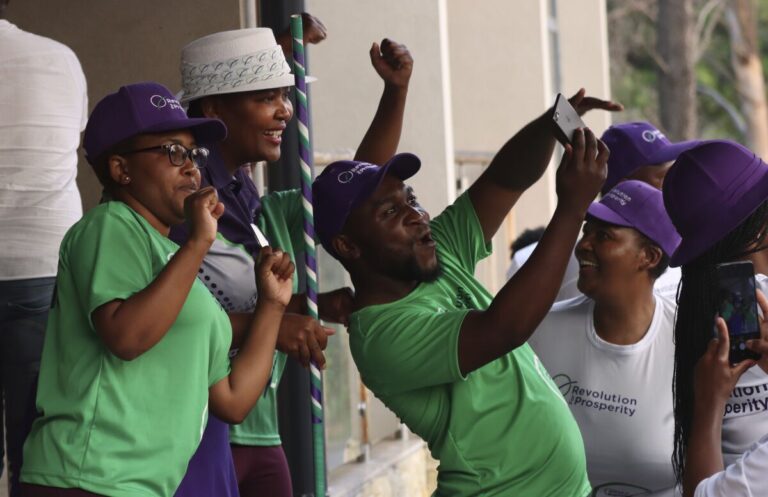Lesotho’s voters may be tired of the decades-long strife among the country’s established politicians. However, a new populist who has won elections unlikely to put an end to corruption in the country.
October 7, Lesotho held a parliamentary elections amid its politicians’ failures to pass constitutional reforms designed to end years of political instability in the southern African kingdom. Instability in Lesotho has at times spread beyond its borders, with politically connected gangs from the country linked to illegal gold mining in South Africa.
The proposed constitutional reforms would have amended everything, starting from the role of political parties, to rules over floor-crossing in parliament, the appointment of senior officials and the role of the prime minister.
Early returns from polling stations suggest that seven-month-old Revolution for Prosperity (RFP) party, led by Sam Matekane, a millionaire businessman, the only party leader with no government service experience, is taking substantial stake of votes, but no majority.
With a turnout of just 37%, the election reflected widespread discontent with the longtime dysfunctional coalition governments that have failed to overhaul a stagnant economy.
RFP had no intention of forming any coalitions and expected to win a simple majority. Matekane blamed the country’s problems on the succession of coalition governments which had begun in 2012, none of which lasted five years though. According to him, that had presented challenges, “because the politicians, they were concentrating more on fighting than looking at the nation”. Throughout the campaign, Matekane emphasized the need for his party to govern alone in order to implement its development agenda completely to lift Lesotho out of endemic poverty, high unemployment and rampant crime.
The populist RFP party emerged as the single biggest party with 56 seats, but now it needs to court other groups to control the southern African mountain kingdom’s 120-member parliament.
Matekane could strike a deal with the Democratic Congress which has come in second place with 26 seats. The following parties got seats as well: the Basotho Action Party (6), the Alliance of Democrats (4), the Movement for Economic Change (4), the Lesotho Congress for Democracy (3), the Basotho National Party (2) and the Socialist Revolutionaries (2). The results highlight the spectacular collapse of the ruling All Basotho Convention which won no seats of the 80 directly elected but did get eight proportional representation seats.
It has promised to do away with rampant corruption and nepotism and focus on economic growth by levelling the playing field for businesses. Matekane’s victory shows clearly that the citizens of Lesotho are tired of people who do not deliver the promise while being in power. Although we have doubts that he could deliver on his campaign promises since there is a caution that Matekane might use his position to secure his own business interests. RFP leader is the owner and Managing Director Matekane Group of Companies, Verve Dynamics, Mpilo Boutique Hotel and other businesses.
Locals say he made his capital mainly by winning lucrative government road construction contracts, mainly, allocated by his “old friend” Pakalitha Mosisili while serving as prime minister. Now Matekane runs a lucrative earthmoving contract at Diamond Letšeng Mine, worth R60-million annually (the government’s share is 30%).
Security, corruption and jobs were the three top issues mentioned by politicians in Lesotho’s election campaigns.
The voting process was observed as transparent with processes and procedures as outlined in the constitution of the Kingdom of Lesotho.
For a small nation of just over 2 million people, comprising one ethnic group speaking the same language and led by a respected constitutional monarch whose family has ruled for nearly two centuries, party politics in Lesotho has to date been notoriously divisive and unstable.
The All Basotho Convention (ABC) has run the country since 2017, but its internal divisions brought two prime ministers over five years. One of them, Thomas Thabane, stepped down in 2020 after being charged with the murder of his ex-wife. He denied any wrongdoing and the charges were dropped later.
His successor, Prime Minister Moeketsi Majoro, declared a state of emergency in August after legislators failed to pass two bills meant to end political volatility in parliament. Last month, Lesotho’s highest court ruled the declaration unconstitutional.
Although 2,560 candidates from more than 50 parties contested the polls, the election as a race pitting outgoing Deputy Prime Minister Mathibeli Mokhothu’s Democratic Congress and his coalition partner Nkaku Kabi’s All Basotho Convention (ABC) against Professor Nqosa Mahao’s Basotho Action Party (BAP) and Matekane’s party.




